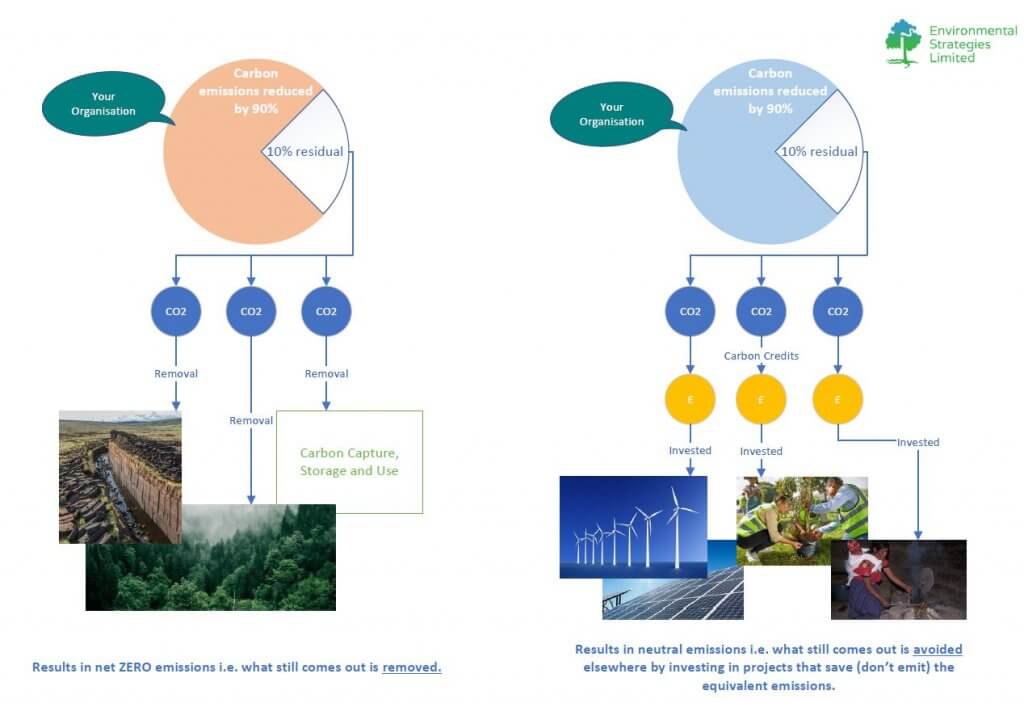Carbon Neutral vs Net-Zero Targets
Lots of organisations are now setting carbon targets in response to Scientists illustrating that net-zero carbon and greenhouse gas emissions by 2050 is the only way to limit the rise in global temperatures to below 2ºC. But what does this mean in practise?
Choosing your carbon reduction targets can be challenging. Every organisation needs to start with understanding what their carbon emissions are now – what data is easy to get, what will be harder; what activities do you want to tackle first (buildings, supply chain, products); and what is already happening in your sector around decarbonisation i.e. baseline, boundaries and benchmark. We can help you determine these starting points in order to set meaningful targets, short and long term, to ultimately get you to either a carbon neutral or a net-zero emissions target or both, across all Scopes of your emissions.
Net-Zero means getting as close to zero greenhouse gas emissions as possible, or at least reducing emissions by 90%, and removing the rest from the atmosphere i.e. what is still being emitted must be removed to balance at zero.
Carbon Neutral does not remove the remaining emissions, instead the remaining emissions are converted into carbon credits, invested in projects that avoid those carbon emissions e.g. renewable energy projects avoid emissions that would have taken place if the monies had been invested in non-renewable energy projects – someone else avoids emitting carbon so that you can continue to emit it, balancing your organisation at carbon neutral.
Most organisations will reach a carbon neutral target as a milestone towards having net-zero emissions – and you don’t need to know every step of how to get there at the start. Just start, and we can show you how – helping you align with customer or science-based targets schemes.
Talk to us about integrating your decarbonisation targets to a wider Sustainability Strategy.





